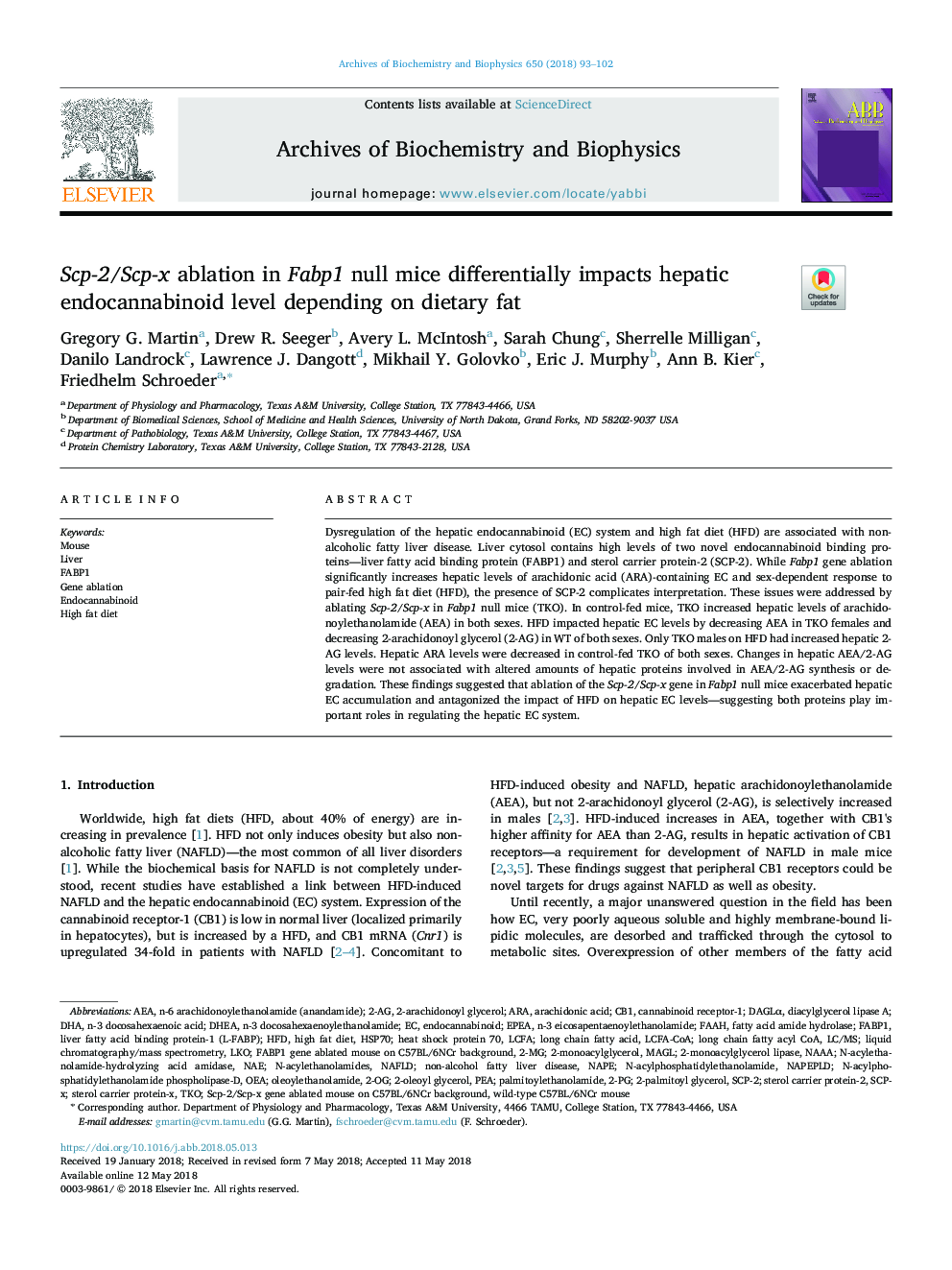| Article ID | Journal | Published Year | Pages | File Type |
|---|---|---|---|---|
| 8288527 | Archives of Biochemistry and Biophysics | 2018 | 10 Pages |
Abstract
Dysregulation of the hepatic endocannabinoid (EC) system and high fat diet (HFD) are associated with non-alcoholic fatty liver disease. Liver cytosol contains high levels of two novel endocannabinoid binding proteins-liver fatty acid binding protein (FABP1) and sterol carrier protein-2 (SCP-2). While Fabp1 gene ablation significantly increases hepatic levels of arachidonic acid (ARA)-containing EC and sex-dependent response to pair-fed high fat diet (HFD), the presence of SCP-2 complicates interpretation. These issues were addressed by ablating Scp-2/Scp-x in Fabp1 null mice (TKO). In control-fed mice, TKO increased hepatic levels of arachidonoylethanolamide (AEA) in both sexes. HFD impacted hepatic EC levels by decreasing AEA in TKO females and decreasing 2-arachidonoyl glycerol (2-AG) in WT of both sexes. Only TKO males on HFD had increased hepatic 2-AG levels. Hepatic ARA levels were decreased in control-fed TKO of both sexes. Changes in hepatic AEA/2-AG levels were not associated with altered amounts of hepatic proteins involved in AEA/2-AG synthesis or degradation. These findings suggested that ablation of the Scp-2/Scp-x gene in Fabp1 null mice exacerbated hepatic EC accumulation and antagonized the impact of HFD on hepatic EC levels-suggesting both proteins play important roles in regulating the hepatic EC system.
Keywords
palmitoylethanolamideFABP1DAGLαFAAHLKO2-arachidonoyl glycerol2-monoacylglycerolCB1maglNAEhsp702-AGoleoylethanolamideN-acylethanolamidesNAAASCP-2SCP-xLCFADHEAPEAAEANAFLD2-OGHFD, high fat dietLC/MSOEATKOendocannabinoidSterol carrier protein-2Arachidonic acidFatty acid amide hydrolaselong chain fatty acidnon-alcohol fatty liver diseaseGene ablationARADHAHigh fat dietMouseNAPEheat shock protein 70LiverLiquid chromatography/mass spectrometrycannabinoid receptor-1
Related Topics
Life Sciences
Biochemistry, Genetics and Molecular Biology
Biochemistry
Authors
Gregory G. Martin, Drew R. Seeger, Avery L. McIntosh, Sarah Chung, Sherrelle Milligan, Danilo Landrock, Lawrence J. Dangott, Mikhail Y. Golovko, Eric J. Murphy, Ann B. Kier, Friedhelm Schroeder,
